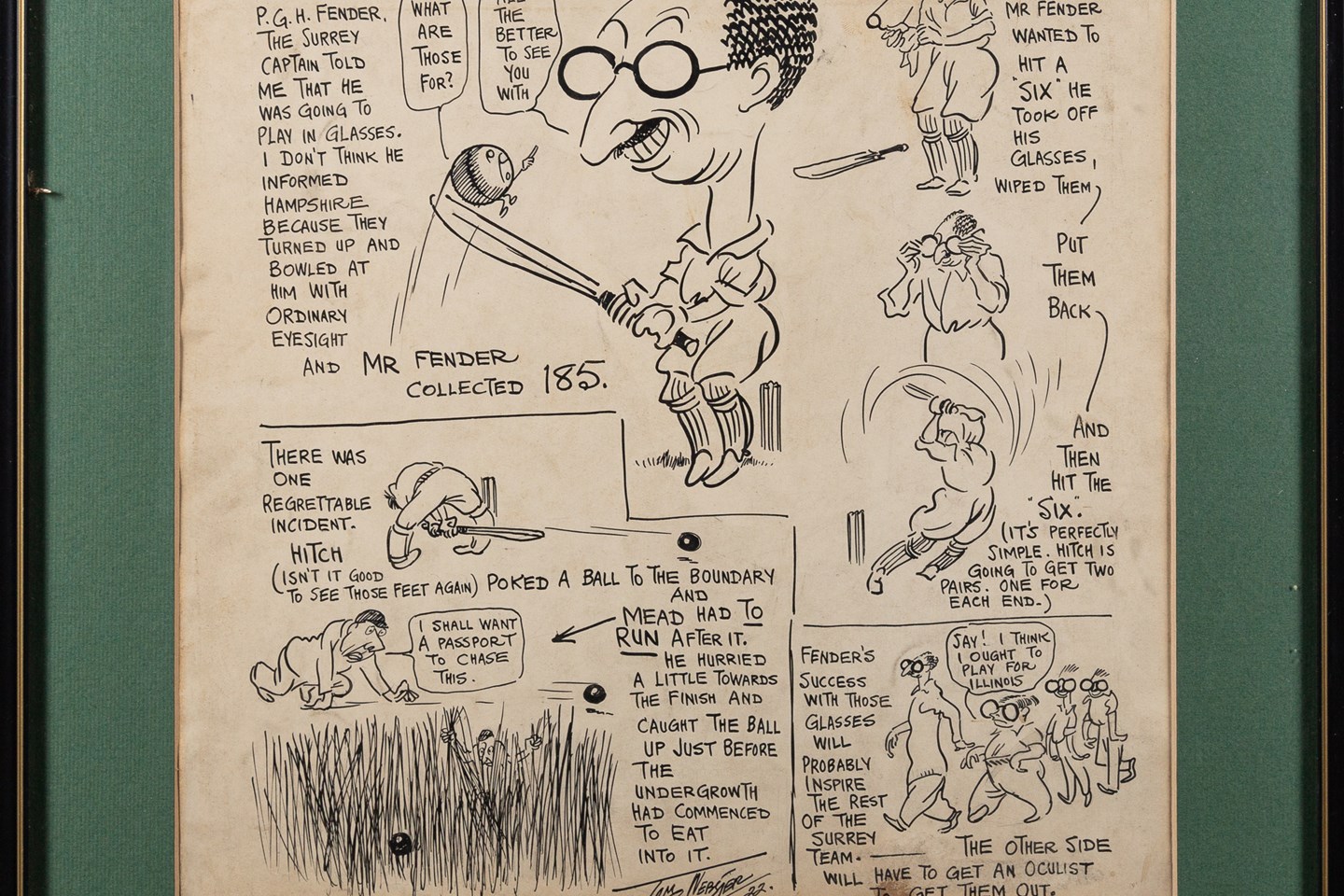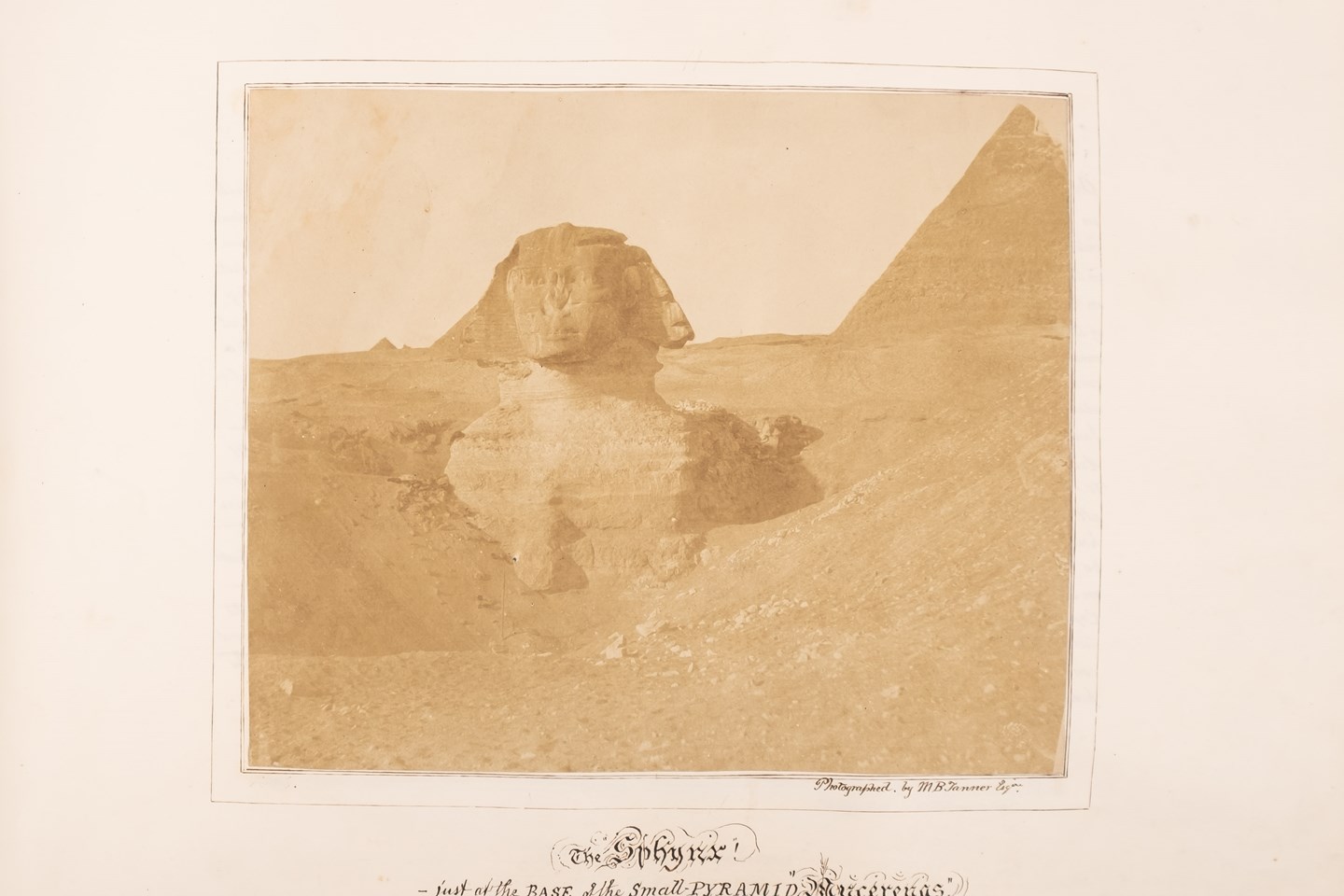The name Daisy Makeig-Jones is synonymous with Wedgwood and primarily Fairyland Lustre porcelain. A rather plumy sounding name indicates that she was not your average Wedgwood painter. Having family friends to pull strings got her employment at the pottery in 1909 when she was twice the age of the other, primarily male, apprentices.
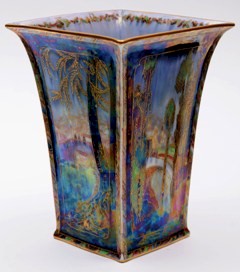
A Wedgwood Fairyland Lustre vase in the
Castle on a Road pattern.
However, within a couple years she escaped the apprentice's bench, something that normally took seven years and was employed for the next twenty years as a fully fledged paintress.
When she began, nearly all of Wedgwood's porcelain was destined for fancy tableware, but with her help and imagination that changed. Wedgwood's Ordinary Lustres with its pearly lustrous finishes, bright colours and gilding had already been received favourably, but when coupled with Daisy Makeig-Jones' imagination to form the novel Fairyland Lustre things really took off.
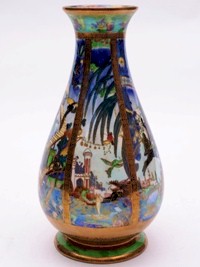
A Wedgwood Fairyland Lustre vase
in the Pillars pattern, circa 1925.
Her inspiration came, as the name suggests, from Fairytales and Folklore, but her schemes also drew from the Oriental and Exotic placing them in expansive, often wooded landscapes. They seem naturally, I guess, to have a slightly intangible ephemeral quality that had the familiarity of a children's tale, but with that something uncomfortable that you couldn't quite put your finger on. It shows a world that we are not part of, there seems to be a secret that we aren't in on; there seems to be something around the corner – maybe the archetypal bogeyman?
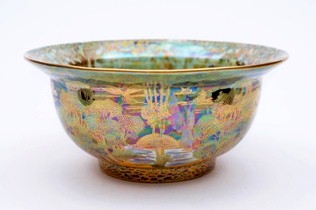
A Wedgwood Fairyland Lustre Kang Hsi bowl
in the Woodland Bridge & Woodland Elves pattern.
Pattern names like Candlemas, Demon Tree, Ghostly Wood, Fairy in a Cage and Goblins certainly play on this theme, whilst Firbolgs and Thumbelina, Elves in a Pine Tree and Fairy Slide lean to the more playful and traditional side of the fairy tale.
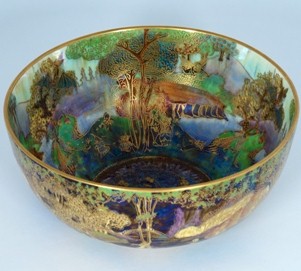
A Wedgwood Fairyland Lustre bowl in the
Woodland Bridge pattern.
As Wedgwood Fairyland Lustre became popular in the early 1920s, Daisy Makeig-Jones produced a small booklet Some Glimpses of Fairyland, which was sent out to Wedgwood dealers with their stock. Part sales catalogue and part whimsy, she used it to flesh out the tales that appeared on her vases and bowls – quite what the recipients made of tales of Leprechauns, elves and Firbolgs one can only guess. However what we do know is that the public loved her work for the twenty years or so that it was in production and there are still plenty of people eager to collect this fanciful porcelain.
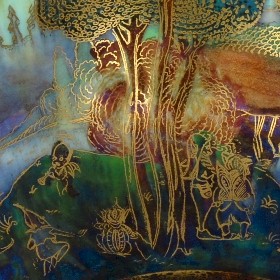
A detail of a Wedgwood Fairyland bowl showing
some 'little people'.
- Bearnes Hampton & Littlewood
- Wedgwood Pottery
- Daisy Makeig-Jones
- Fairyland Lustre
A Flight of Fancy, Daisy Makeig Jones and Wedgwood’s Fairyland Lustre was written on Thursday, 10th October 2013.








